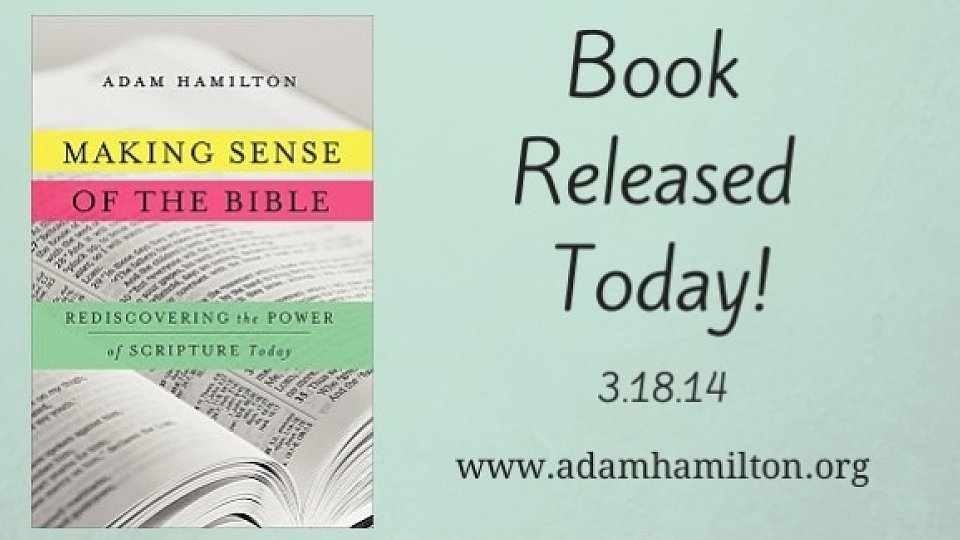Making Sense of the Bible: An Attempt at an Honest Yet Reverent View of Scripture

I’m excited that today my new book, Making Sense of the Bible: Rediscovering the Power of Scripture Today, is out. I thought in this post I’d tell you a bit about why I wrote the book. I was sitting on a plane reading my Bible when the guy next to me spoke up and said, “Great book you’re reading there!” “Yes, I love this book. It sounds like you do too.” He replied, “Yeah, and what I think is so amazing about it is that it was all written by the finger of God on stone tablets. I think that’s amazing.” Trying not to embarrass him I mentioned, “That was just the Ten Commandments.” “Oh, yeah, that’s what I meant.” That story really happened, and while few people would make this man’s mistake, it points to the fact that a lot of people revere the Bible, but have a very simple, and often unexamined, view of scripture. I had several aims in writing this new book. The first was to start a conversation I believe the church must have about what scripture is, how God has spoken through it, and how much latitude we have in asking questions of what we read in the Bible. I also hope to help readers see when, why, and how the Bible was written, and how its various books came to be considered scripture and why. In several chapters I consider the issues of the Bible’s authority, inerrancy, and infallibility. In addition, I offer a suggestion for what does and what does not constitute a “high view of scripture.” After wrestling with questions concerning the nature of scripture, I walk through the most frequently asked questions posed to me by laity concerning what they read in the Bible, questions like: How do we reconcile modern scientific accounts of creation with the Bible’s creation stories? Did God really command the Israelites to slaughter millions of people? Children, too? Did God command that priests burn their children alive if they became prostitutes? Is Revelation a guide to the end times? You get the idea. And yes, chapter 29 is on homosexuality. If you buy the book, I hope you’ll resist the urge to skip to that chapter; at least read the first 28 chapters before turning there. My book is for Christians who are not afraid to ask difficult questions that may challenge their deeply held convictions about the Bible. Paradoxically, it is also for people who have been turned off to Christianity in part because of things they’ve read in the Bible. The book is a conversation starter, not the final word, and while I offer answers to the questions I pose, I’m anticipating that better answers are out there. My answers make the most sense to me at this time. I love the Bible and I read it daily. It is the defining story of my life. I believe it is inspired by God and “useful for teaching, for reproof, for correction, and for training in righteousness.” AND I think that we’ve got to have a better, more faithful, more honest understanding of what the Bible is, what it is not, and how it bears, conserves, and proclaims God’s word. I hope you’ll join me in this conversation as you read the book. Adam Hamilton To order Making Sense of the Bible click here. A DVD and leader’s guide are available for small group use. I will be speaking in several cities on this new book in the coming weeks. Click here to see if I'll be coming to a city near you.